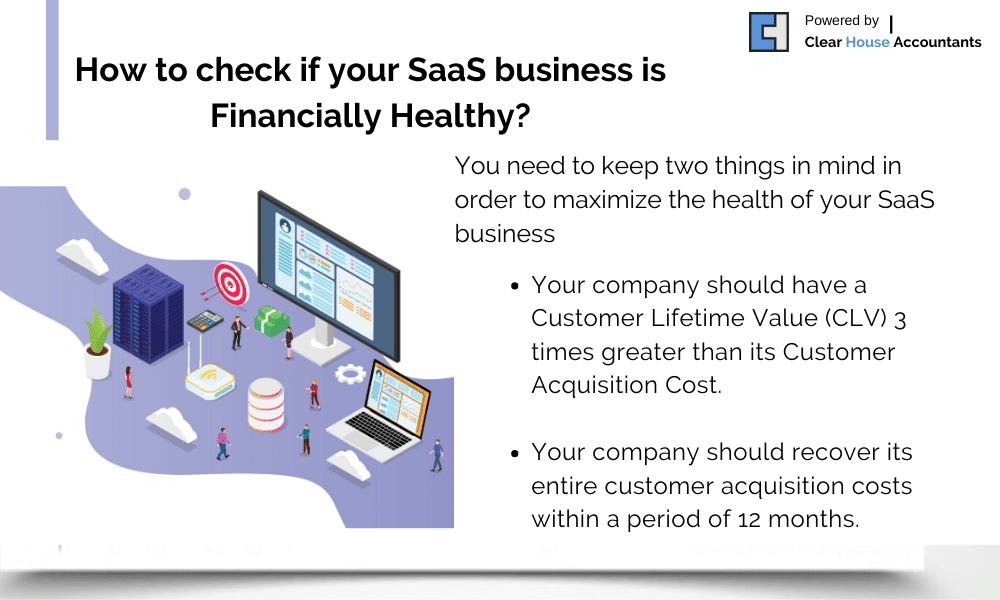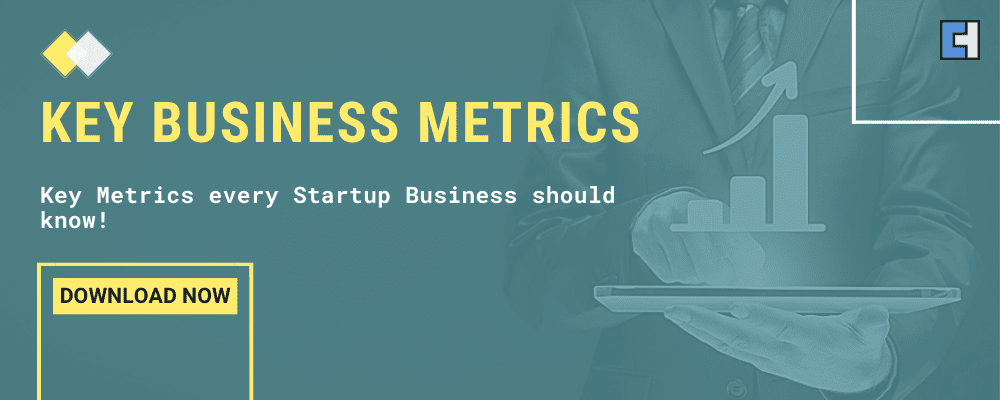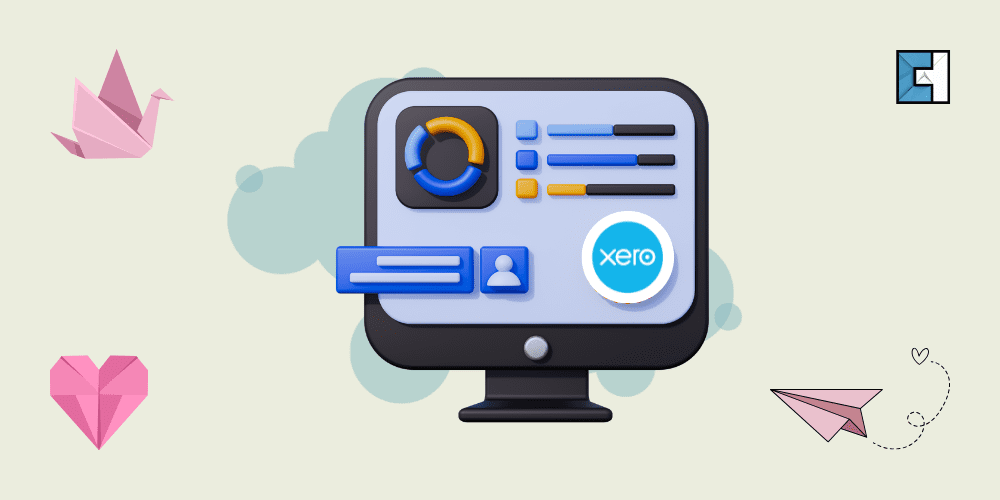The UK’s business sector has seen a significant rise in SAAS businesses in recent years, owing to the increase in the usage of cloud technology and its components, such as IaaS and PaaS. Modern businesses are adopting SAAS technology with great interest due to its ease of use and implementation. Due to SAAS technology being accessible over the internet, the need to install expensive servers and applications is no longer required and the software can be run out of the box using just a good internet connection and a subscription.
Due to the high demand and increased innovation within the SAAS industry, more and more SAAS businesses are being set up with aggressive growth. Like any growing business, a SAAS business also needs a competitive accountant, an amazing team and sufficient resources. However, some owners can make the mistake of going for a traditional accountant, old school metrics made for brick and mortar businesses which lead to insufficient resources and potential business failure. Due to the specific nature of the business it is advisable to look for a SAAS Accountant and use state of the art methodologies which have been set up specifically for the SAAS industry.
To start you off we have explained below metrics which have been specifically designed for the SAAS industry, if your SAAS Accountant or your accounting firm is unsure about any of these terms, it is time to look for another Accountant in London or switch accountants to someone who is familiar with the SAAS industry:
Monthly recurring revenue (MRR)
Before you set out on a journey to increase your business’s profitability, you must know what metrics you will be emphasizing on for growth. There are a number of metrics, each holding their own significance according to the nature of the business, but here’s one metric that you should definitely pay attention towards, as you are managing a subscription-based business and that is Monthly Recurring Revenue (MRR).
Recurring revenue is the stream of revenue that continues to flow into your business, similarly, monthly recurring revenue is the amount of money your customers will continue to send to your business on a monthly basis. Estimating MRR is pretty easy as you just have to remove one-off sales from the total monthly revenue. You can also calculate MRR by multiplying the subscription cost by the number of subscribers.
It is very important to note that the number of subscriptions alone will never provide you with the relevant information required to evaluate the financial state of your business but it is the amount of revenue that is reappearing into your business’s treasury.
The average revenue per customer
The average revenue per customer metric if a good way to assess the scope of your deal size before you work towards increasing it, by increasing the deal size and not the number of customers. Why work so hard and dedicate a tremendous amount of resources to broaden your customer base, when you can simply start pocketing further profits from your existing customers by increasing their deal size.
Remember that your business is subscription-based and you can offer numerous upgrades and premium packages to exclusive customers who are willing to pay a higher price for a variety of new services. Your prime focus should be towards offering quality products and services to increase your average revenue per customer as much as possible.

Cash flow
A survey revealed that there is a considerable portion of businesses that fail to continue because of the lack of control on their cash flow. Whilst many pay attention to their profits and cash receivable, only a few give due importance to their cash flows. Imagine running out of cash to manage the daily activities of your business, paying out salaries, paying electricity and gas bills etc, even if you have payments due from your customers.
Maintaining control over the cash flow becomes really complicated and risky for SAAS businesses as they have to ensure that their customers are paying for their subscription on a regular basis. With customers not paying for the subscriptions on time, SAAS businesses can end up in trouble in multiple ways, for instance, they do not receive the cash for the service they have already provided, forcing them to cover the costs required to provide the subscription services without any cash in hand.
To be effective in your strategies, study more about what cash flow really is and how it can significantly impact the operations of your business. Once you think you have gained enough knowledge about managing your business’s cash flow, enlighten your managers about different ways they can ensure steady, efficient and maximum cash flow. You need to keep in mind that your cash flow is one of the primary and decisive factors that is going to play a critical role in the survival of your SAAS business. Alternatively hire a good Accounting Firm who have the right in-house trained accountants that can help you build cash flow forecasts, cash burn reports and effective credit control systems.
Cost of acquisition and customer lifetime value
You need to keep in mind that the number of subscriptions alone would be insufficient to track your business’s financial position and standing in the market. There are other metrics to consider when it comes to investigating the financial health of a SAAS business, things such as the cost being incurred to acquire a new customer and how much value can you extract from that customer.
Cost of Acquisition and Customer Lifetime Value are the two metrics that hold significant relevance when checking the financial health of a SAAS business. Cost of Acquisition is the cost incurred by the company to acquire a specific customer whilst Customer Lifetime Value represents the amount of monetary value a firm can derive from a customer through its lifecycle. It is important to ensure that the cost of acquiring a customer should not exceed the amount of value a business can derive from that customer, in other words, your COA should never exceed your CLV or otherwise, you are losing more value than what you are generating.
You should ensure that you encourage your managers to employ effective marketing strategies like ‘customer retention strategies’ to avoid wasting your resources and capture the interest of the customer with minimal effort. Speak to your accountant when building a management reporting process, ask them to measure the SAAS metrics on top of the other financial measures to help you estimate the actual performance of the business.

Wait for the right time
It’s all about taking the right decision at the right moment. Play your cards at the wrong time and your cash flow can reduce significantly which in result can negatively impact the overall survival of your business.
Hence, it is wise to keep track of a few metrics that are extremely relevant to the performance of your SAAS business. Keeping track of such metrics will always leave room for the business to improve its profitability and sustainability.
These metrics are just the tip of the iceberg. If you are preparing your business for potential investors or are looking for a series funding round, it is advisable to hire a specialist SAAS Accountant who should be able to help you design effective SAAS reporting processes using the correct metrics, enabling you to present a good picture to potential investors. Understanding key metrics like the SAAS Magic Number can also provide valuable insights into your business’s growth efficiency.
Clear House Accountants are specialist skillful Accountants in London who have years of experience working with highly innovative SAAS businesses in the UK, helping them prepare effective SAAS reporting on top of their statutory obligations. Speak to us to learn more.









































































